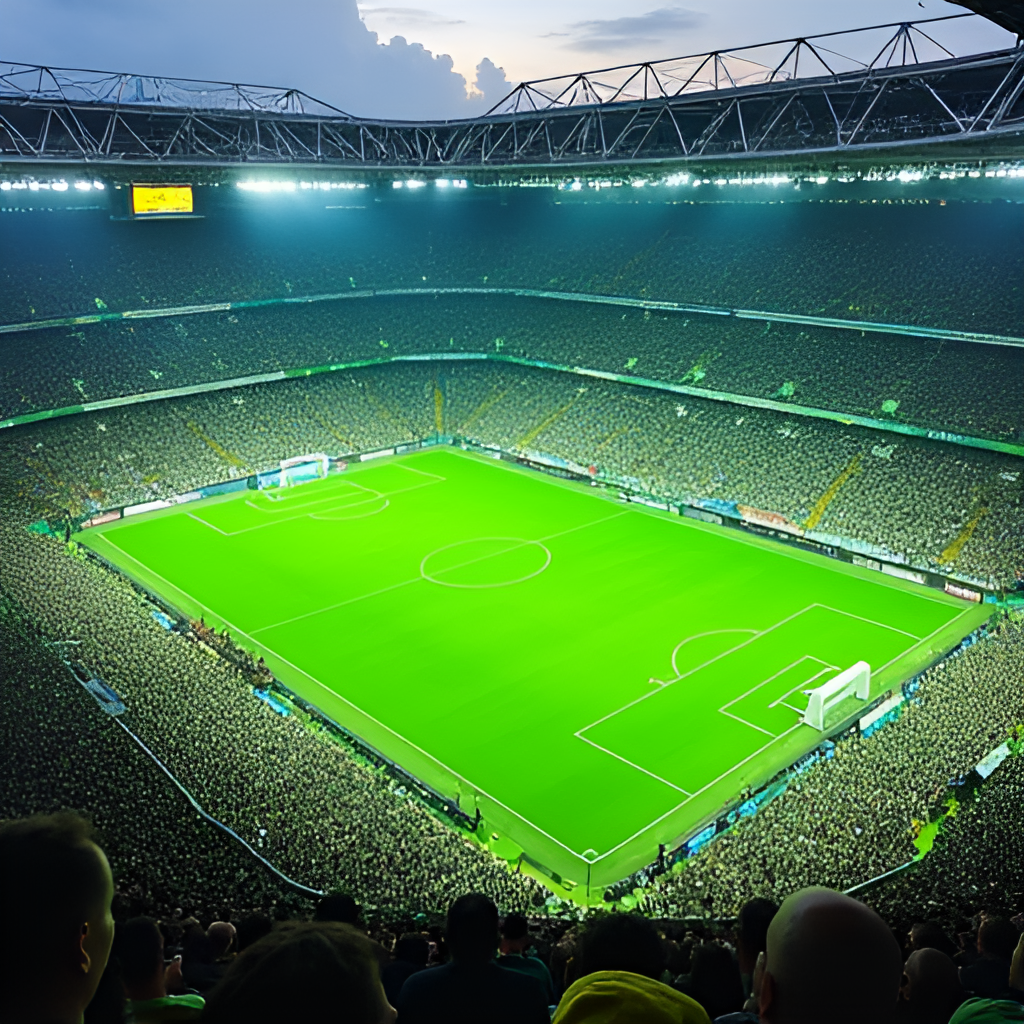Palmeiras: More Than Just a Football Club, a Legacy
- Introduction to the World of Palmeiras
- Italian Roots and the “Heroic Charge”
- The “Academies”: Golden Eras of Dominance
- The Parmalat Era and Copa Libertadores Glory
- Allianz Parque: A Modern Home for a Giant
- A Fanbase Like No Other: Passion and Identity
- Recent Success and the Future
- Palmeiras: A Enduring Brazilian Powerhouse
Palmeiras, a name that resonates deeply within Brazilian football, is far more than just a club; it’s a legacy built on passion, history, and an unwavering connection with its fans. As someone who’s followed Brazilian football for years, I can tell you that the story of Sociedade Esportiva Palmeiras is truly captivating. From its humble beginnings rooted in the Italian immigrant community of São Paulo to its current status as one of the most successful clubs in South America, Palmeiras has a rich and compelling narrative that any football enthusiast should know. In this article, we’ll delve into the storied past, significant achievements, and the vibrant culture surrounding the club known affectionately as “Verdão.”
Italian Roots and the “Heroic Charge”
The story of Palmeiras begins on August 26, 1914, when it was founded by Italian immigrants in São Paulo as “Palestra Italia”. This name, a clear nod to their heritage, reflected the founders’ desire to create a football team that would represent the Italian community in the burgeoning São Paulo football scene. However, history had a twist in store. During World War II, Brazil joined the Allied forces, leading to pressure on organizations with names referencing Axis powers. On September 14, 1942, “Palestra Italia” was renamed Sociedade Esportiva Palmeiras.
Just six days after this name change, Palmeiras played a pivotal match against São Paulo at the Pacaembu Stadium. This game, which saw Palmeiras emerge victorious and claim the Campeonato Paulista title, became known as the “Arrancada Heroica” (Heroic Charge). It wasn’t just a victory; it was a powerful statement of the club’s resilience and its commitment to Brazil, solidifying its place in the nation’s football landscape despite the political circumstances. It’s a moment etched in the club’s identity.
The “Academies”: Golden Eras of Dominance
The 1960s and 1970s are often referred to as the era of the “Academies.” This period saw Palmeiras field exceptionally talented teams that dominated Brazilian football. Players like Ademir da Guia, Dudu, and Leão became legends, their skill and teamwork earning the club widespread admiration. During these decades, Palmeiras secured multiple Campeonato Brasileiro titles, showcasing a blend of technical skill and tactical prowess that set them apart. I’ve heard stories from older fans about watching Ademir da Guia play, and they describe him with a reverence that tells you just how special that era was. His vision and passing were apparently on another level.
This dominance wasn’t limited to domestic competitions. Palmeiras also actively participated in the Copa Libertadores during this time, gaining valuable international experience and building their reputation on the continental stage.
The Parmalat Era and Copa Libertadores Glory
The 1990s marked another golden era for Palmeiras, largely fueled by a successful partnership with the Italian company Parmalat. This sponsorship provided the financial resources to build a star-studded team featuring prominent Brazilian and international players. Names like Rivaldo, Edmundo, Zinho, and Marcos became synonymous with Palmeiras during this period. Under the guidance of coach Vanderlei Luxemburgo, Palmeiras secured several important titles, including Campeonato Brasileiro and Campeonato Paulista championships.
The pinnacle of the Parmalat era, and a moment etched forever in the memory of every “Palmeirense,” was the conquest of the Copa Libertadores in 1999. After a thrilling campaign, Palmeiras defeated Deportivo Cali in the final on penalties, securing their first-ever title in South America’s most prestigious club competition. I remember watching that final, the tension was immense, and the explosion of joy when Marcos saved that last penalty was incredible. It was a truly historic achievement for the club.
Allianz Parque: A Modern Home for a Giant
For decades, Palmeiras’ home was the Estádio Palestra Itália, affectionately known as Parque Antártica. This historic stadium held countless memories for generations of fans. In 2014, coinciding with the club’s centenary, Palmeiras inaugurated their new stadium, the Allianz Parque.
The Allianz Parque is a state-of-the-art multipurpose arena built on the site of the old stadium. With a capacity of over 43,000 for football matches, it provides a modern and vibrant atmosphere for home games. Beyond football, the stadium also hosts concerts and other events, making it a significant landmark in São Paulo. Walking around the Allianz Parque, you can still feel the history of the old Parque Antártica, but with all the modern amenities. It’s a fantastic place to watch a game.

This image is a fictional image generated by GlobalTrendHub.
A Fanbase Like No Other: Passion and Identity
Palmeiras boasts one of the largest and most passionate fanbases in Brazil and South America. Known as “Palmeirenses,” these supporters are renowned for their unwavering loyalty and the incredible atmosphere they create at the Allianz Parque. The club’s mascots, the parakeet (“Periquito”) and the pig (“Porco”), are symbols of this vibrant fan culture. While “Porco” was initially used as a derogatory term by rivals, the fans bravely adopted it in the 1980s, turning it into a symbol of pride and identity.
The passion of Palmeiras fans extends beyond Brazil, with official fan clubs existing in various parts of the world. This global presence highlights the club’s widespread appeal and the deep connection its supporters feel, no matter where they are. I’ve met Palmeiras fans in different countries, and their dedication is truly impressive. It’s more than just supporting a team; it’s being part of a global family.
Recent Success and the Future
In recent years, Palmeiras has re-established itself as a dominant force in Brazilian and South American football. Under the guidance of Portuguese coach Abel Ferreira, the club has achieved remarkable success, including back-to-back Copa Libertadores titles in 2020 and 2021. These victories solidified Palmeiras’ position among the elite clubs on the continent. The club has also continued to add to its impressive tally of Campeonato Brasileiro titles.
Palmeiras’ recent success is a testament to strong management, tactical discipline under Abel Ferreira, and the continued support of its passionate fanbase. The club is consistently competing for major honors and looks set to remain a key player in both domestic and international football for years to come. It’s an exciting time to be a Palmeiras fan, that’s for sure.

This image is a fictional image generated by GlobalTrendHub.
Palmeiras: An Enduring Brazilian Powerhouse
Sociedade Esportiva Palmeiras’ journey from a club founded by Italian immigrants to a continental giant is a compelling one. With a rich history, a cabinet full of trophies, a modern stadium, and a fiercely loyal fanbase, Palmeiras has firmly cemented its place as one of Brazil’s most iconic and successful football clubs. The legacy of Palmeiras is a story of resilience, passion, and an enduring commitment to excellence on and off the pitch. Palmeiras continues to inspire millions and remains a true powerhouse in the world of football.